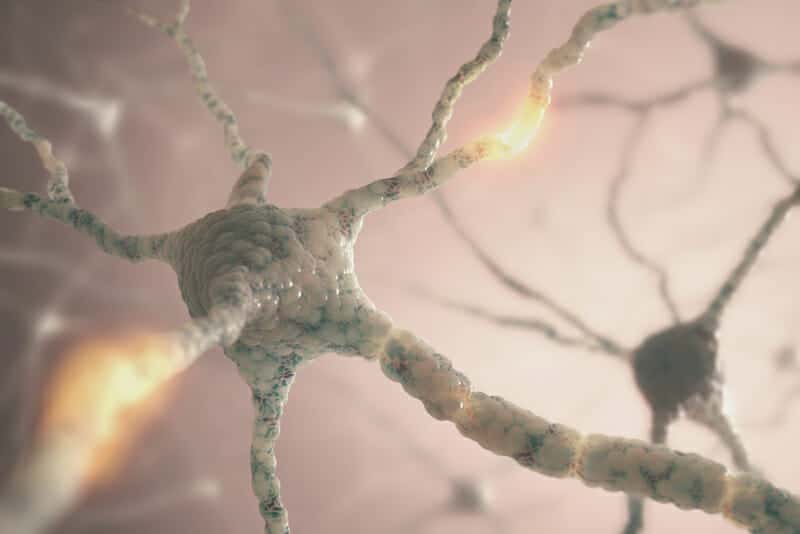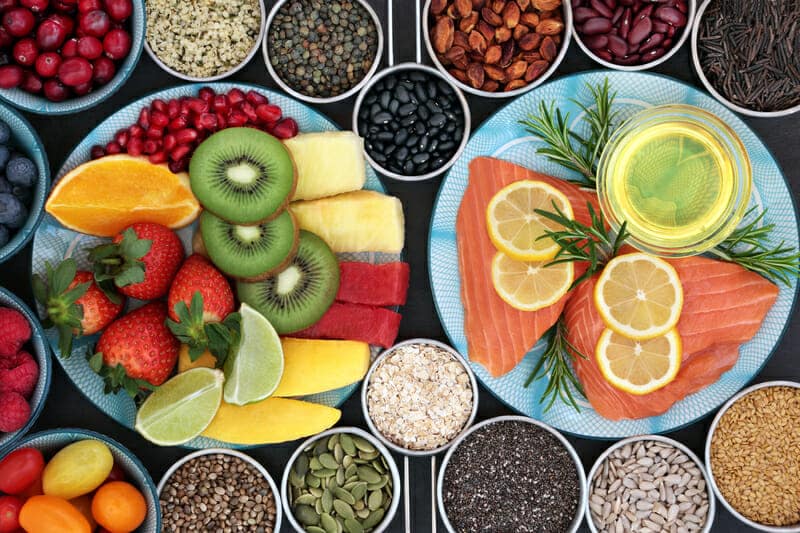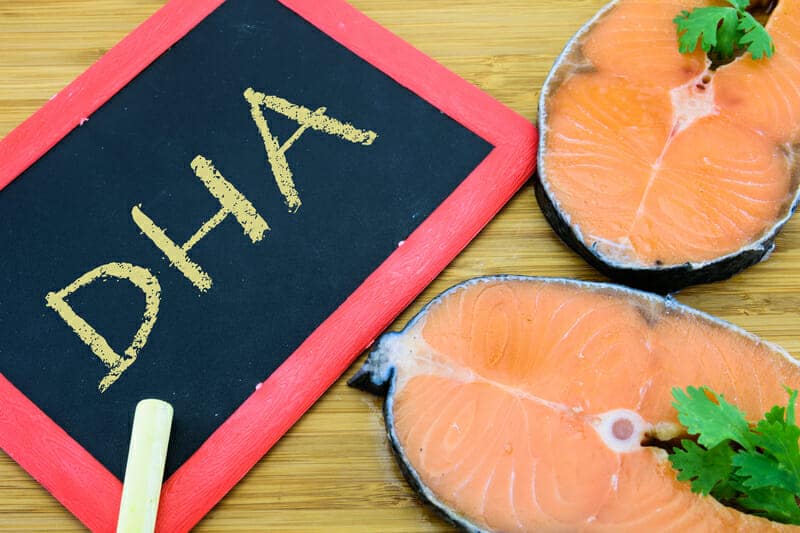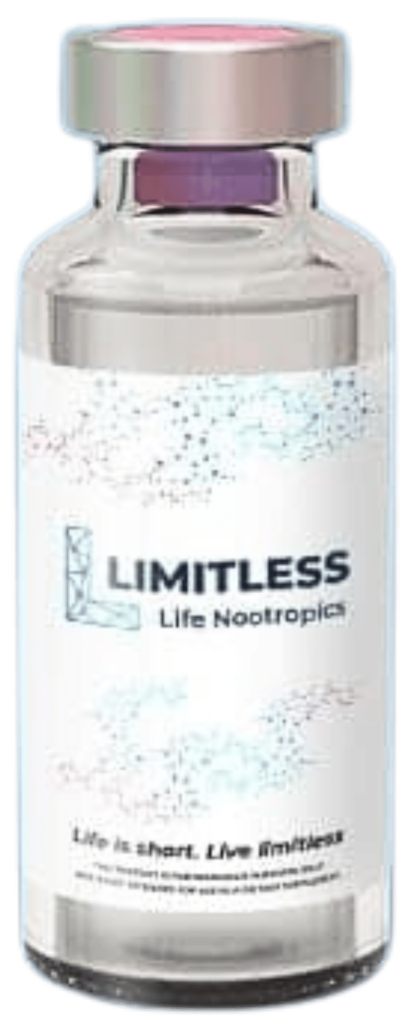Phenomenal strides have been made in studying exactly how the human brain works and what it is capable of.
Specifically, a lot of interest has been garnered in the study of neurogenesis: The idea that our brains can continue to form new neuron cells into adulthood.
It’s important because this single neurological process carries vast implications for improved memory, increased cognition, better focus, and overall better mental health.
We then need to figure out two simple things: How to stimulate neurogenesis in the first place, and how to increase neurogenesis consistently throughout our lives.
This article contains all of the best science-backed lifestyle habits and interventions for how to promote neurogenesis.
Many of them might be new to you, but most of them will be things you have “already heard of.”
Yet another reason to practice the art and science of fully optimized living!
Table of Contents
ToggleWhat is Neurogenesis?

Very simply, neurogenesis can be defined as the brain’s ability to generate brand new neurons.
Here’s a brief summary of what causes neurogenesis:
“During the process, neural stem cells differentiate—that is, they become any one of a number of specialised cell types—at specific times and regions in the brain.
Stem cells can divide indefinitely to produce more stem cells, or differentiate to give rise to more specialised cells, such as neural progenitor cells. These progenitor cells themselves differentiate into specific types of neurons… neural stem cells can also differentiate into glial progenitor cells, which give rise to glial cells such as astrocytes, oligodendrocytes and microglia.”
For many years, it was believed that this process could ONLY happen during embryonic development and nowhere else in a human being’s lifetime… meaning that whatever neurons you developed were all you had, and regeneration of neurons was impossible.
This thinking changed in the second half of the 20th century thanks to three decades of research in animals:
“In the 1960s, some very brave scientists began to use the more advanced techniques of that time to demonstrate that some mitotic figures could be identified in the brains of adult birds. This generated a lot of interest and a shift of focus was made to the mammalian species which were considered to be more advanced species and closer to the human being.
Adult neurogenesis was discovered in progressively higher orders of the mammalian species from the rodents (laboratory rats and mice) to the primates such as chimpanzees and monkeys. In 1998 a scientist by the name of Peter Ericksson and his team were the first to conclusively demonstrate that adult generated neurons could be identified in the human brain as well”
We now differentiate neurogenesis in later life as “adult neurogenesis”, which takes place in two key areas within a mammal’s brain: the SVZ (subventricular zone) within the brain’s lateral ventricles, and the SGZ (subgranular zone) of the dentate gyrus within the brain’s hippocampus (responsible for memory regulation).
Here’s some more details on how this mechanism works:
“Neurons born in the adult SVZ migrate over a great distance through the rostral migratory stream and become granule neurons and periglomerular neurons in the olfactory bulb.
Neurons born in the adult SGZ migrate into the granule cell layer of the dentate gyrus and become dentate granule cells. Recent studies also showed that newborn neurons in the adult brain integrate into the existing circuitry and receive functional input.
Adult neurogenesis is regulated by physiological and pathological activities at all levels, including the proliferation of adult neural stem cells (NSCs) or progenitors, differentiation and fate determination of progenitor cells, and the survival, maturation, and integration of newborn neurons”
This is separate from the concept of neuroplasticity, which relates to the how the nervous system changes its structure and function:
“…when you repeat a movement like swinging a golf club over and over, the neural pathways involved in controlling that movement become stronger and faster. Not only do existing synapses (junctions between neurons) begin to fire more efficiently, but new synapses are formed and other neurons are recruited to get in on the action. As a result, your golf swing becomes more automatic, reliable, and forceful the more often you practice.”
We don’t know every single detail of the mechanism of neurogenesis, but brain-derived neurotrophic factor (BDNF) is believed to serve a major role:
“Exogenous application of BDNF can restore the levels of hippocampal neurogenesis in aged animals. In the same way, exercise-induced increases in neurogenesis are necessary for the physical activity-dependent enhancement in learning and memory. This led to the idea that neurogenesis could be the substrate of this cognitive enhancements mediated by BDNF.”
If you can’t figure out why neurogenesis is beneficial for brain health by now, allow me to spell it out for you:
“Neurogenesis is important because it improves brain functioning and increases adaptive behaviours that allow animals to adapt to the constant changes in their environment. Cognitive functioning, such as memory, are linked to hippocampal functioning and the incorporation of new neurons in the brain structure. As it is known, age-related decline in neurogenesis could contribute to impaired cognitive functions”
Before we talk about HOW to promote neurogenesis, keep in mind there are some limitations in this field of study:
- Improved cognitive function does not necessarily result from neurogenesis
- Neurogenesis may not always be beneficial in the context of certain disease states
- Some evidence suggests the rate of neurogenesis naturally declines with age, possibly due to the steady decrease of neutral stem cells to form new neurons
With that disclaimer out of the way, let’s jump right into the actionable things you can do to promote neurogenesis!
Neurogenesis Foods and Diet

If we want to start with the easiest route with respect to what promotes neurogenesis, we need to watch what we put into our mouths.
That’s right — there are “neurogenesis foods” which are clearly shown to stimulate and increase the formation of new neurons.
Blueberries
Blueberries are best known as the “brain food” among those who study nutrition for a living, and it’s no surprise why.
Numerous animal studies — here, here, and here — consistently find an increase in neurogenesis within the hippocampus region of the brain.
This can be explained by the high concentration of antioxidants within blueberries known as flavonoids:
“Blueberries are packed with polyphenols, especially flavonoids called anthocyanins that stimulate neurogenesis through your diet. More specifically the anthocyanin dye, which causes the dark blue color, crosses the blood-brain barrier to stimulate neurogenesis. This anthocyanin dye is also present in black currents, blackberries, and bilberries, though these have not been studied as extensively”
No reason why you can’t add an extra cup or two into your daily diet.
Chewing “Hard” Foods
Here’s where the research into diet-induced neurogenesis gets really interesting.
There is a growing body of evidence in humans and animals suggesting a diet heavy in “soft foods” (ex. soups, yogurt, breads, etc.) has negative effects on jaw shape and development.
You’ve probably seen this idea suggested in funny memes and comparisons to what we looked like thousands of years ago:
(Source)
As it turns out, a diet consisting mostly of soft foods can also lower our rate of adult neurogenesis:
“…rats fed with a soft diet, as opposed to a solid/hard diet, exhibit decreased hippocampal progenitor cell proliferation. The authors hypothesize that chewing resulting in cell proliferation is related to corticosterone levels.
Interestingly, independent studies have shown impairment in learning and memory abilities with similar soft diets. If chewing plays a role in AHN [adult hippocampal neurogenesis], these data could be particularly relevant to the ageing population with cognitive decline where dental weakening might limit the chewing ability”
“Hard solid foods” would consist of items such as meats, raw vegetables and fruits, nuts, and “chewier” sources of dairy and complex carbohydrates.
Intermittent Fasting
This now-popular dieting practice, which I’ve fully maximized for rapid fat loss in my Metabolic Blowtorch protocol, now has an additional health benefit attached to it.
Several rat studies (here and here) show intermittent fasting helps increase neurogenesis within the brain’s hippocampus region.
While meal timing can certainly be a factor, we cannot discount the caloric restriction that inevitably happens for most people who practice intermittent fasting:
“Scientists also believe that DR [dietary restriction] can help patients with neurodegenerative conditions by promoting neurogenesis. DR increases adult neurogenesis in young adult rats, and reduces age-related declines in neurogenesis in older mice (Levenson and Rich, 2007).
Furthermore, DR stimulates neurogenesis in the hippocampus, a brain region important for memory. DR also causes an increase in levels of BDNF, a protein shown to help newly born neurons survive (Mattson et al., 2004).”
Much is left to be explored with respect to when we eat and how much we eat in relation to promoting neurogenesis.
For instance, some rat studies suggest caloric restriction may actually inhibit neurogenesis when performed on younger animals:
“…the effect of caloric restriction on hippocampal neurogenesis seems to depend on the developmental stage of the animals and/or on the pattern of food availability.
In adult rats and mice fed ad libitum every other day (and completely food deprived on the alternate days), caloric restriction leads to an increase, while in adolescent rats, fed 60% of ad libitum for 2 months, caloric restriction leads to a decrease in hippocampal neurogenesis.”
Avoiding Alcohol
What I found most fascinating about neurogenesis is our better-supported understanding of what LOWERS neurogenesis compared to what INCREASES neurogenesis.
As you can imagine, drinking alcohol will definitely have a negative impact on stimulating neurogenesis:
“Alcohol induced inhibition of neurogenesis results in an estimated cell loss that is identical to that reported after chronic alcohol exposure (Nixon and Crews, 2002; Walker et al., 1980).
Thus, these data when considered altogether strongly support that inhibition of neurogenesis – both reduced proliferation and reduced cell survival – may be a mechanism that contributes to volume loss in adolescents with an AUD [alcohol use disorder]”
Not a shocker when you realize alcoholism is a progressive neurodegenerative disease!
Furthermore, the effect of alcohol on neurogenesis does not manifest immediately, making it even more dangerous
“A single high dose of alcohol reduces NSC proliferation (Nixon and Crews 2002)… One recent experiment in rats showed that a single dose of 5g of alcohol per kg of body weight (a dose that, in humans, would produce blood alcohol levels of about 230 mg/dL, nearly three times the legal driving limit of 0.08 percent) depresses NSC proliferation by 40 percent (Nixon and Crews 2002).”
“As differentiation takes approximately 2 to 4 weeks, any functional effect of reduced proliferation would not be observed until weeks later. Thus, there is a time lag between alcohol consumption and its effects on hippocampal circuitry. As a single dose of alcohol decreases proliferation by 40 percent, this suggests that any observable effects on hippocampal integrity and function would be delayed”
Eat An Anti-Inflammatory Diet
Although this could be regarded as an overall strategy, I wanted to put the topic of chronic inflammation in this section.
If systemic inflammation is bad for the body, it sure as hell is bad for the brain:
“…we demonstrate that lipopolysaccharide-induced inflammation, which gives rise to microglia activation in the area where the new neurons are born, strongly impairs basal hippocampal neurogenesis in rats.
The increased neurogenesis triggered by a brain insult is also attenuated if it is associated with microglia activation caused by tissue damage or lipopolysaccharide infusion”
Furthermore, there is evidence suggesting that destroying senescent cells can help to improve the rate of neurogenesis.
It’s no wonder why the Mediterranean Diet consists of the foods considered to be anti-inflammatory — fruits and veggies, omega-3 fatty acids, fish, and so on.
Lifestyle and Environmental Factors for Neurogenesis

With food and drink fully covered, we can now focus on what causes neurogenesis with respect to our daily habits.
Again, if you are already doing these things consistently, don’t worry and keep doing them.
But if you aren’t… there’s no better time to start than right now.
Exercise
If exercising is so well-known to help us stay smarter and sharper in old age, shouldn’t it be affecting neurogenesis in some way?
It turns out this is one of the few findings of neurogenesis promotion where similar results are observed in rats and humans:
“These recent findings that neurogenesis can occur beyond development have brought into questions whether physical exercise can be shown to promote neurogenesis and brain health, as it has been shown to promote the function of other organ systems.
Some data has already shown physical exercise to induce adult hippocampal neurogenesis (AHN) as demonstrated by restoration of cognitive functions, improvement of synaptic plasticity, and enhancement of angiogenesis.
A large-scale meta-analysis has also demonstrated that 45–60 min of moderate-intensity physical exercise to dramatically improve cognitive functions in human subjects over the age of 50″
More specifically, we see this observation (here and here) when it comes to aerobic exercise such as cardiovascular training.
One plausible mechanism through which this happens is the selective forgetting of old memories in exchange for new memories:
“We trained mice in a touchscreen-based object/location task and then increased neurogenesis using voluntary running. Our results indicate that running increased neurogenesis and resulted in poor recall of the previously established memory.
When subsequently exposed to a reversal task we also show that running reduced the number of correction trials required to acquire the new task contingencies. This suggests that prior forgetting reduces perseveration on the now outdated memory.”
A possible way to explain how exercise-induced neurogenesis can help us eliminate bad beliefs in exchange for newer positive beliefs?
We’ll have to wait and see, but either way we have yet another reason to hop a bike or treadmill for 30-6o minutes every day.
Sleep
Ever noticed how sleeping less makes you stupid, tired, and unable to function properly throughout the day?
It’s because you’re choosing to actively inhibit your brain’s rate of neurogenesis.
We’re not 100% sure on WHY that happens, only that sleep deprivation definitively has a negative effect on neurogenesis:
“The mechanisms by which sleep loss affects different aspects of adult neurogenesis are unknown. It has been proposed that adverse effects of sleep disruption may be mediated by stress and glucocorticoids. However, a number of studies clearly show that prolonged sleep loss can inhibit hippocampal neurogenesis independent of adrenal stress hormones.
In conclusion, while modest sleep restriction may interfere with the enhancement of neurogenesis associated with learning processes, prolonged sleep disruption may even affect the basal rates of cell proliferation and neurogenesis. These effects of sleep loss may endanger hippocampal integrity, thereby leading to cognitive dysfunction and contributing to the development of mood disorders.”
These effects can be seen after as little as one week of sleep deprivation, and it can take up to two weeks of good sleep to see a full recovery in neurogenesis.
So make sure you’re getting your 7-8 hours of interrupted sleep seven days a week.
Stress Management
There’s nothing wrong with being stressed out occasionally, but like all things in life, being chronically freaked out is destroying your mental health.
Even more worrying is how stress can decrease neurogenesis at a young age if left uncontrolled:
“Although the effects of acute and mild stress on AN [adult neurogenesis] are generally brief and can be quickly overcome, chronic exposure or more severe forms of stress can induce longer lasting reductions in neurogenesis that can, however, in part, be overcome by subsequent exposure to exercise, drugs targeting the stress system, and some antidepressants.
Exposure to stress, particularly during the sensitive period of early life, may (re)program brain plasticity, in particular, in the hippocampus. This may increase the risk to develop cognitive or anxiety symptoms, common to brain diseases like dementia and depression in which plasticity changes occur, and a normalization of neurogenesis may be required for a successful treatment response and recovery.”
Some studies even suggest the neurogenesis inhibition is permanent if chronic stress is experienced consistently in early life.
One more reason why raising your vibration is of the utmost importance!
DHA: The BEST Supplement To Stimulate Neurogenesis

While there are numerous supplements for neurogenesis you can take, I want to focus on one brought to my attention by my good friend Lance Schuttler of Ascent Nutrition.
It is none other than the essential omega-3 fatty acid known as DHA (docosahexaenoic acid).
Over half of the brain’s composition is fat, and Omega-3 fatty acids make up a huge portion of that fat:
“The human brain is about 60% fat. Omega-6 fats comprise <2% of the total brain fatty acids and, hence, are considered as non-functional. Whereas saturated and omega-3 fats make up over 84% of the total brain fatty acids — and they are mandatory for proper brain functions and development.”
DHA is “essential” because we need it to function properly and yet our bodies alone cannot make enough of it:
Essential fatty acids (EFAs) are required for maintenance of optimal health but they can not synthesized by the body and must be obtained from dietary sources… The EFAs, particularly the omega-3 fatty acids, are important for brain development during both the fetal and postnatal period. Dietary decosahexaenoic acid (DHA) is needed for the optimum functional maturation of the retina and visual cortex, with visual acuity and mental development seemingly improved by extra DHA.”
It is arguably the most important fatty acid in the brain, moreso than EPA.
Since it is also the most abundant fatty acid in the brain, fundamental for brain development since the day you start developing inside your mother’s womb, and vital for both basic and optimal brain function, why not get as much of it as possible?
Why not reach higher levels of cognitive performance with a brain-enhancing nootropic our body desperately needs to survive?
In case you’re convinced yet, here are several more reasons to start increasing your DHA uptake immediately:
- Upregulates BDNF expression
- Supports synaptamide production, a compound synthesized from DHA that promotes neurogenesis and synaptogenesis
- Assists in the expression of genes responsible for balancing our circadian system
- Improves both reaction and memory time
- Raises a child’s IQ at 1 gram per day when given to pregnant/lactating mothers
So now that you have the information, the only question left is how to practically consume an optimal amount of DHA per day.
In order to get optimal levels of DHA such that biomarkers like cholesterol and blood pressure readings are at healthy levels, you would need to consume 1000-2000 mg of DHA daily.
The average American barely reaches 2400 mg of DHA PER WEEK, and meeting that amount through eating salmon alone would require anywhere between 5.6 to 11.2 servings per week (one serving has 1240 mg of DHA).
What’s the solution to this problem?
How can we easily get the 1,000-2,000 mg of DHA and EPA per day necessary to support lifelong neurogenesis?
The answer lies in Lance’s brand new supplement Algae Oil DHA:
Sitting at 1000 mg of DHA and 10 mg of EPA per 2 mL serving, it contains 250% more DHA than the best-selling fish oil brands on a per unit basis.
Every 60 mL (2 oz) bottle contains DHA that’s water-extracted from algae in the wild (which is what fish eat to incorporate DHA into their cellular membranes) to produced the cleanest and most concentrated DHA solution in the world.
Therefore, you’re getting DHA straight from its purest source and nowhere else.
It also far exceeds all safety standards as proven by independent 3rd-party testing, free of any heavy metals or bacteria commonly found in other fish oil brands (testing results available on sales page).
I’ve tried this for the past 2 months and highly recommend it over other fish oil brands found in your local pharmacy or supplement store.
CLICK HERE to get your bottle of Algae DHA Oil today!
CONCLUSION: A Daily Dose Of DHA Keeps The Doctor Away

You now know everything there is to know about how to increase neurogenesis, how to stimulate neurogenesis, and how to prevent the decline of neurogenesis into old age.
Whether it’s through neurogenesis foods, neurogenesis supplements, or even living a healthy lifestyle, nothing here should be a shocker to anybody who uses common sense.
It’s more-or-less the same steps you would follow for fully optimizing mitochondrial health or increasing BDNF production naturally.
It’s almost as if living a low-inflammation, hormonally-enhanced lifestyle automatically takes care of almost every health problem in existence. 😉
As always…
Raise Your Vibration To Optimize Your Love Creation!
PS – For exclusive investigations into the most vital practices and protocols designed to achieve elite mental performance, join The Fully Optimized Health Private Membership Group.
It’s your greatest opportunity to fully optimize your health and gain total access to me and my network of high-level men and women living their highest and best life.




